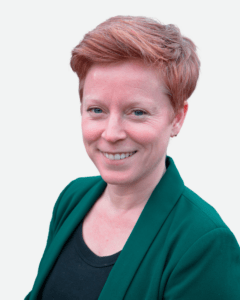
In September 2024 we launched Reaching Potential, our latest report in the Sussex Uncovered series. These reports give a broad picture of the facts across Sussex around our different funding priorities.
The Reaching Potential report highlights the challenges faced by communities in Sussex, compared to the regional and national picture. It specifically focuses on some of the issues preventing people – especially young people – from achieving their full potential and features some of the charities and groups we support who work in this area.
In the Reaching Potential report we identified three critical areas:
Pupils in Sussex perform below national averages at Key Stage 2, with 11 of 13 Local Authorities showing lower attainment in reading, writing, and maths. Eastbourne records the poorest performance, with fewer than half meeting expected standards. At GCSE stage Sussex also underperforms, against the South East and national averages, with Hastings showing the weakest outcomes. Crawley, Arun, Eastbourne and Rother similarly fall short across key metrics, including GCSE grades and attainment scores.
Apprenticeship participation and achievement rates for under-19s in Sussex are below the South East and national averages. Additionally, young people aged 19-24 are less likely to engage in apprenticeships, community learning, or further education compared to their peers across England.
There is a clear link between absence and attainment. Persistent absence increased significantly post-Covid but slightly improved from 2021/22 to 2022/23. Secondary schools face higher persistent absence rates, particularly among girls in Brighton & Hove, while boys are more likely to be persistently absent at primary school.

"Without this programme I would be a lot less aspirational. I think it has made such a big difference it’s hard to put into words. They helped me look at life in a more holistic, authentic way - not just academic. Sometimes things happen that are beyond your control. Being able to respond positively to those changes is what matters. The biggest thing is breaking that wall between what I thought I needed to be like to do these."
Read the full case study from Villiers Park.
The report highlights disparities for pupils with Special Educational Needs (SEN) and other disadvantaged groups.
Sussex has a higher proportion of pupils with SEN than regional and national averages, particularly in Speech, Language, and Communication needs. Educational outcomes for SEN pupils in Sussex are below national standards, with boys performing worse than girls.

"J is a young person with SEN who has struggled in recent times with mental health issues. To help address these challenges, J joined Amaze as a volunteer to help run the peer support sessions. J’s mental wellbeing began to improve and through this voluntary work discovered he had a talent for youth work and the advocacy of young people with SEN."
Continue reading J's story from Amaze.
Children eligible for Free School Meals (FSM), non-English speakers, and young carers face significant educational barriers. Sussex has a higher proportion of Children in Need than England, with Brighton & Hove having the highest rates. Parental mental health issues are the leading reason for Children in Need assessments, often linked to higher persistent absences, exclusions, and suspensions. FSM-eligible pupils perform below South East and national averages at both Key Stages 2 and GCSE.
Sussex has a higher proportion of non-English speakers than the South East, although lower than the national average. Crawley has the highest rates of pupils with a first language other than English, exceeding the national average, and these pupils tend to perform worse at Key Stage 2 and GCSE stage than their peers in the South East or nationally.
Employment challenges in Sussex stem from poor transport links and a lack of large urban centres. East Sussex has lower job density (60.74 jobs per 100 working-age population versus 77.86 for England) and longer travel times to large employment centres (39 minutes compared to England’s 16 minutes). Hastings has the second-lowest job density in Sussex and the longest travel time to major employment hubs (55 minutes).
Small businesses dominate East Sussex, with fewer large employers compared to the South East and England. Horsham, Rother and Wealden have the highest proportion of small businesses, while Crawley has the highest proportion of large businesses.
Unemployment rates are higher among those with no or low qualifications. Crawley and Hastings have the highest unemployment among individuals with no qualifications, and Brighton & Hove has the highest unemployment rates across all skill levels.
"Coming to People Matter made a huge contribution to my newfound confidence. I became excited about looking for work and about the future, because they were so helpful and made the most daunting, seem easier, with supportive and helpful discussions, and I was able to engage with someone on my own level."
Read the full story from People Matter Trust.
Although the findings of the report might seem grim, we know it’s not all bad news. In Sussex we have an amazing charity sector working hard who need our help. Together, we can help pave the way for a fairer and more equal future for as many as possible.
Join us to make a difference and donate to our Reaching Potential Fund. Contact our Philanthropy team at 01273 490 440 or email jackie@sussexcommunityfoundation.org.
“The report starkly demonstrates the challenges that our communities in Sussex are facing. Everyone should be entitled to reach their potential at every stage of life. We have a long way to go towards that, but there are many brilliant local charities that are doing everything possible to help people be the best they can be.”



